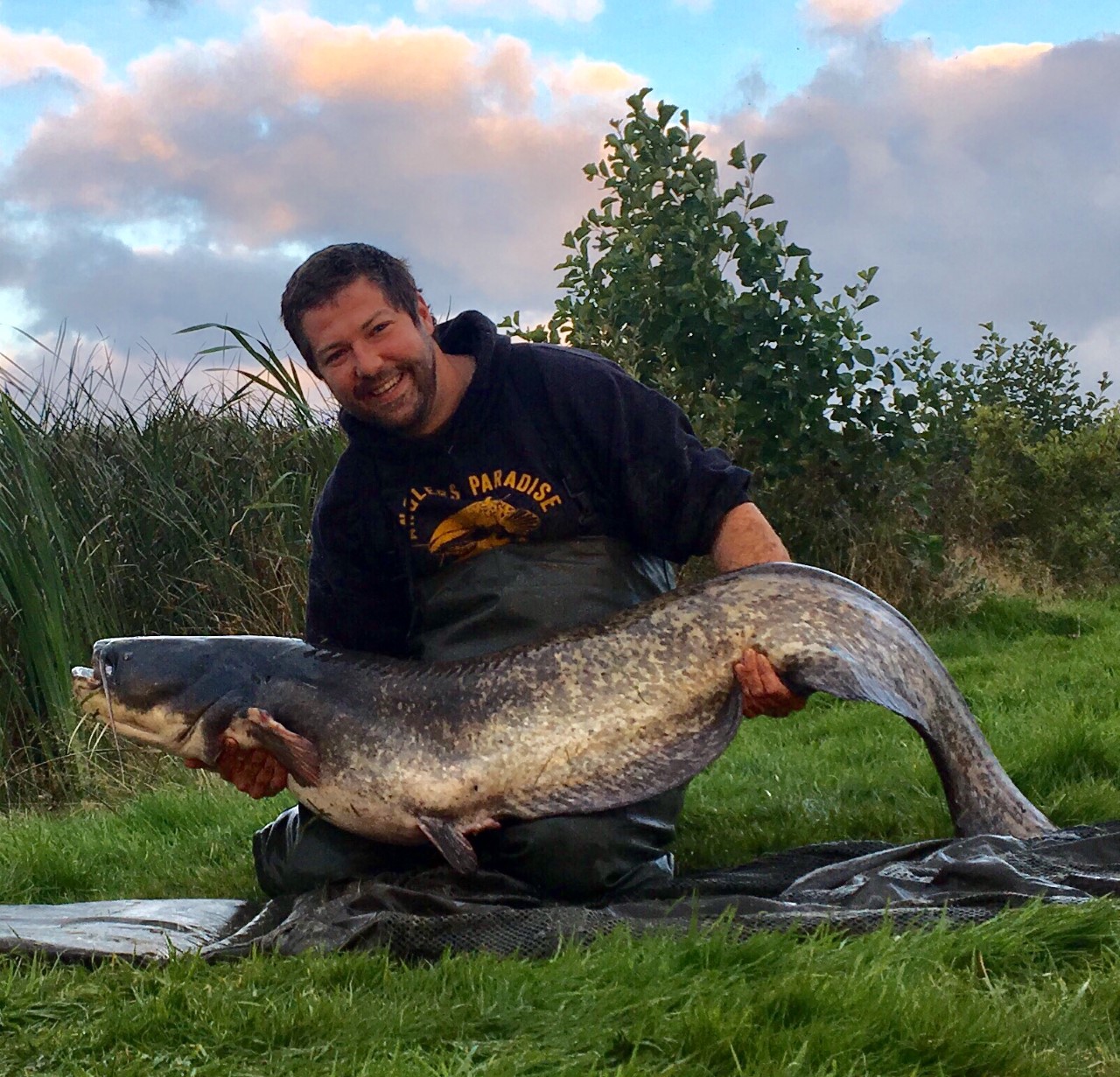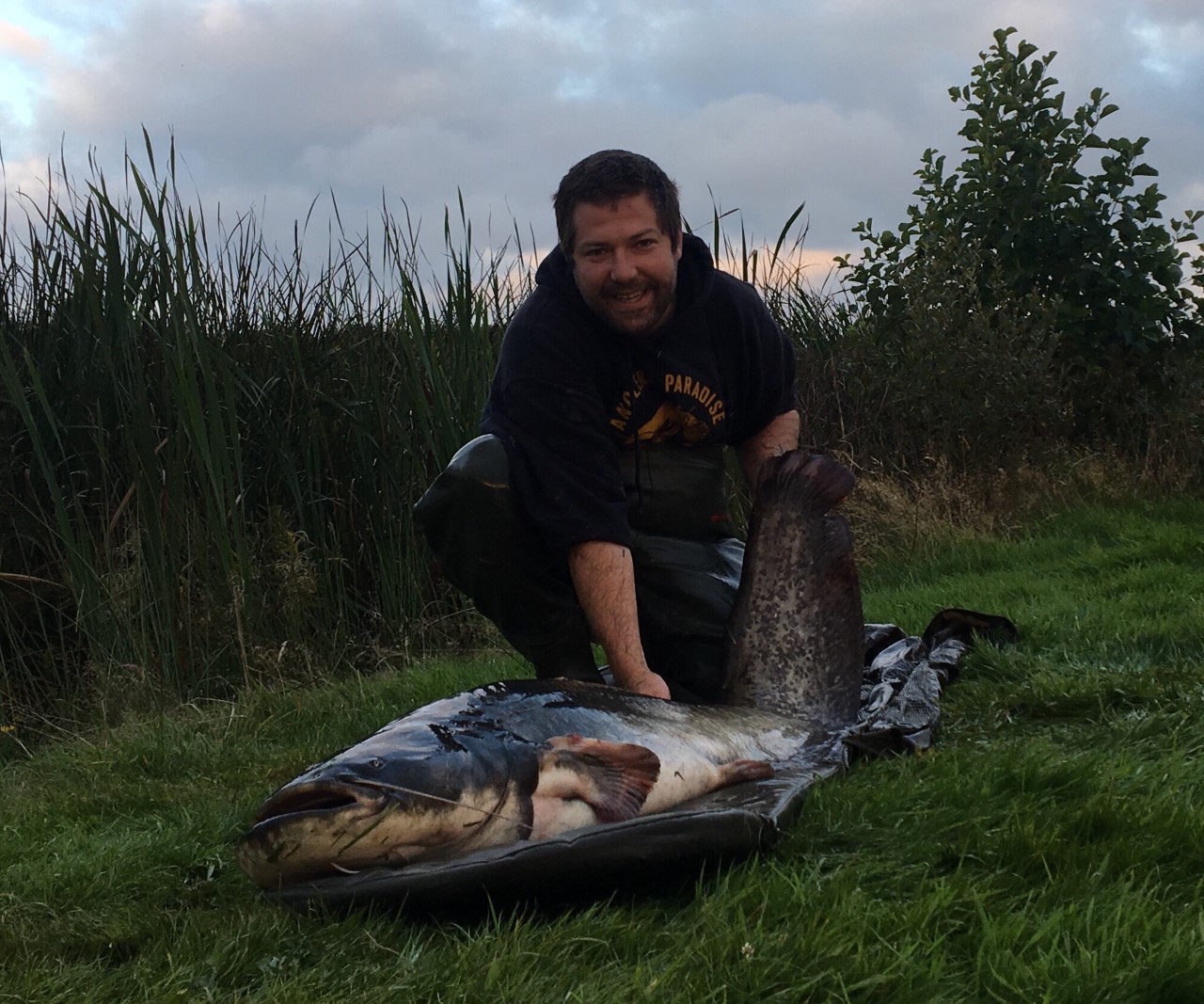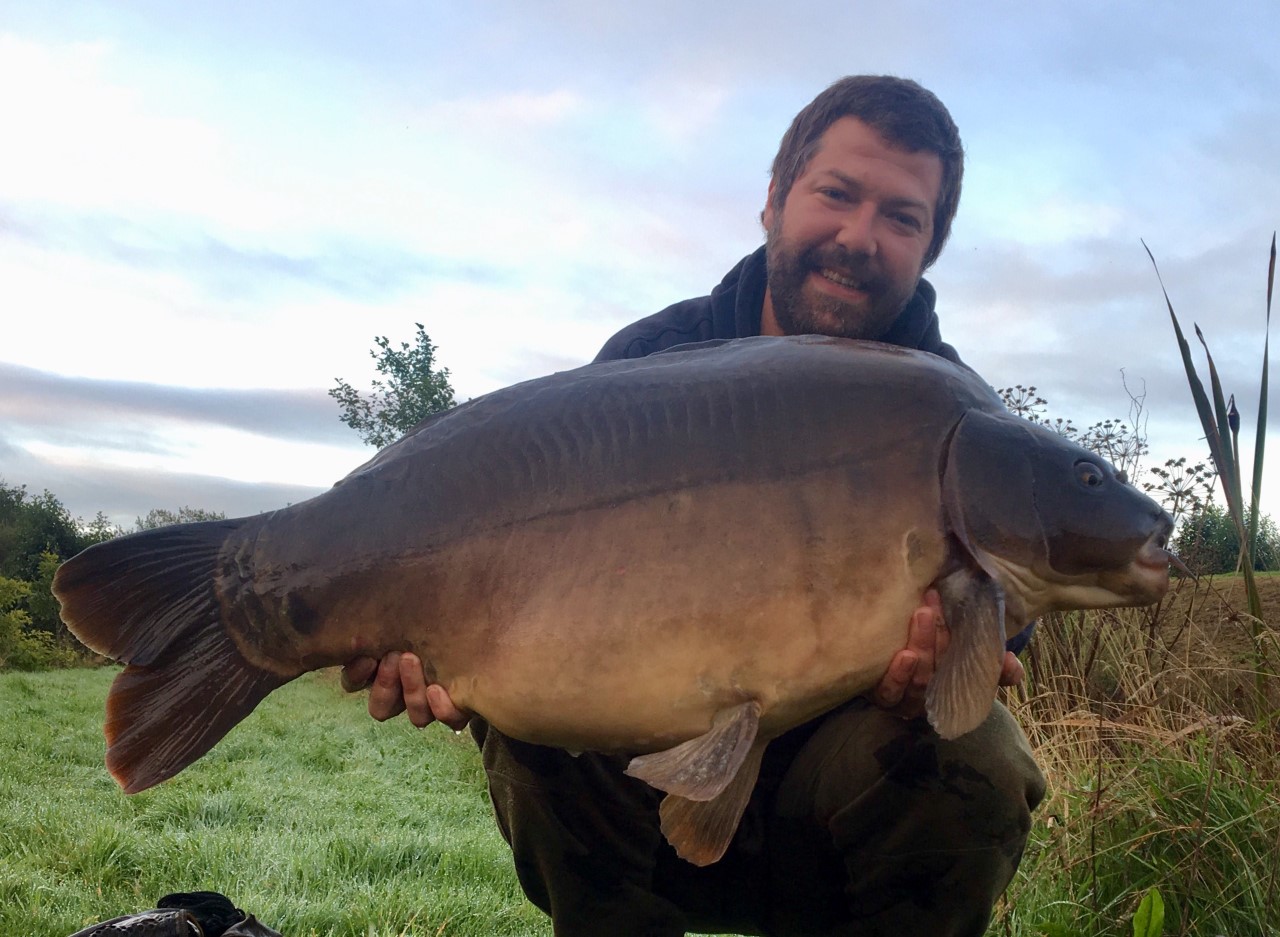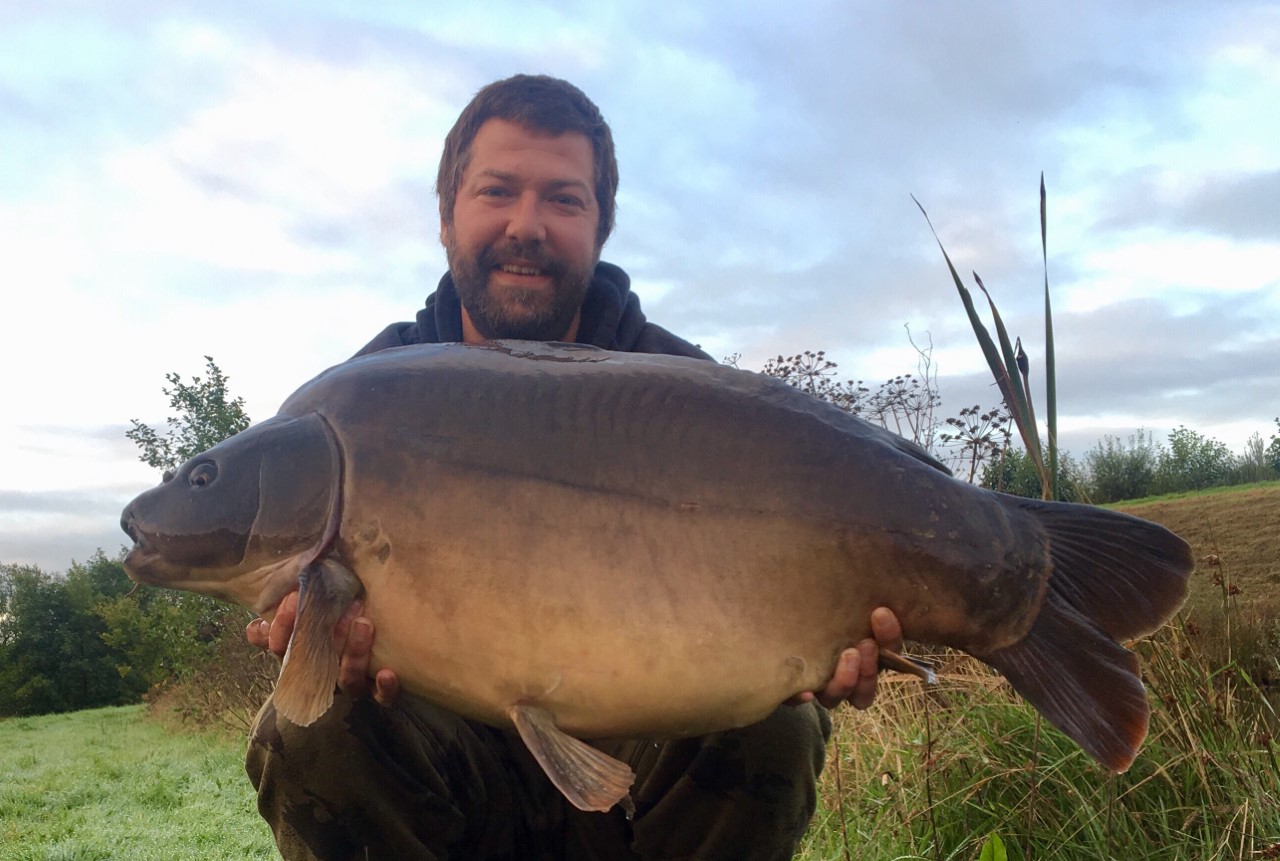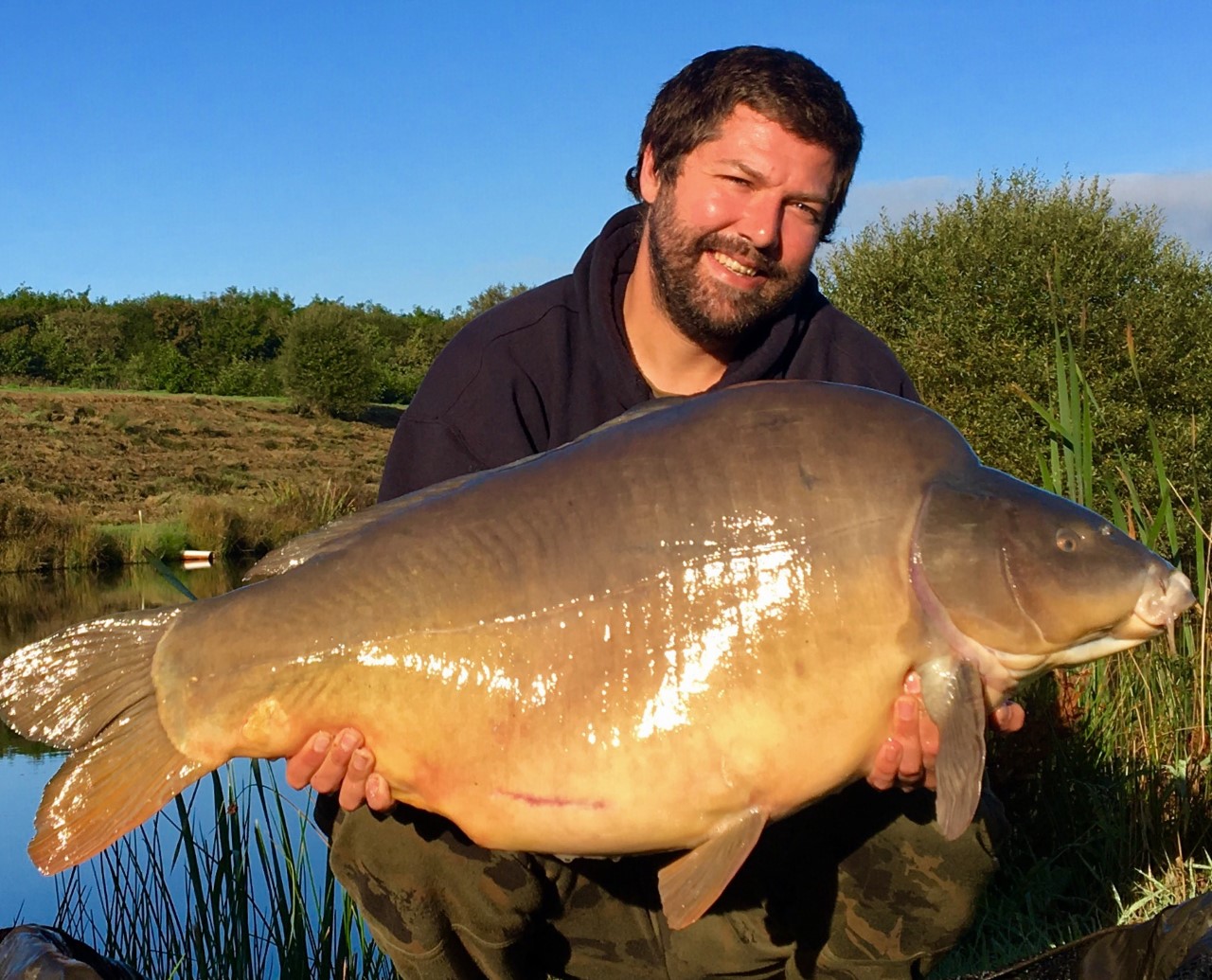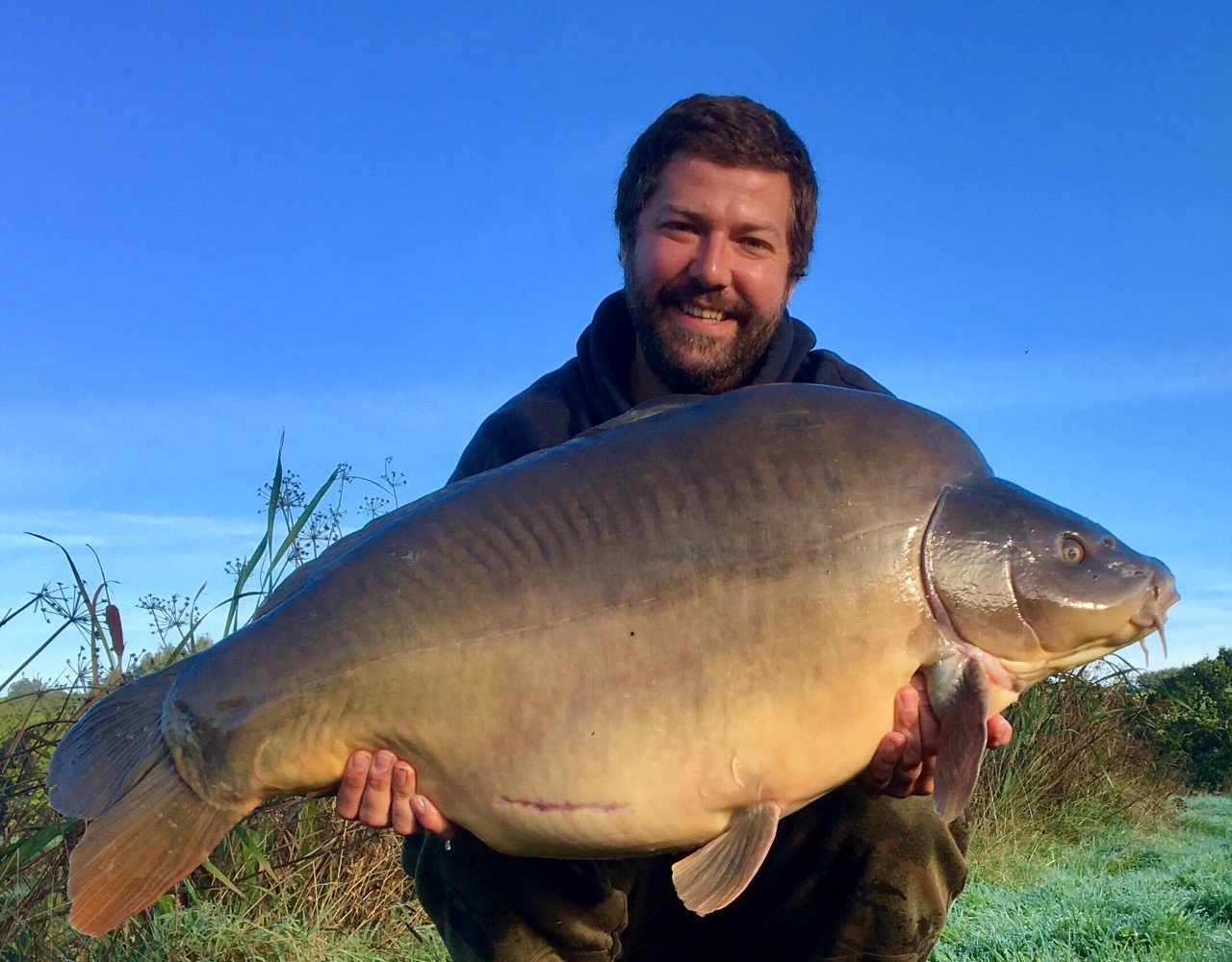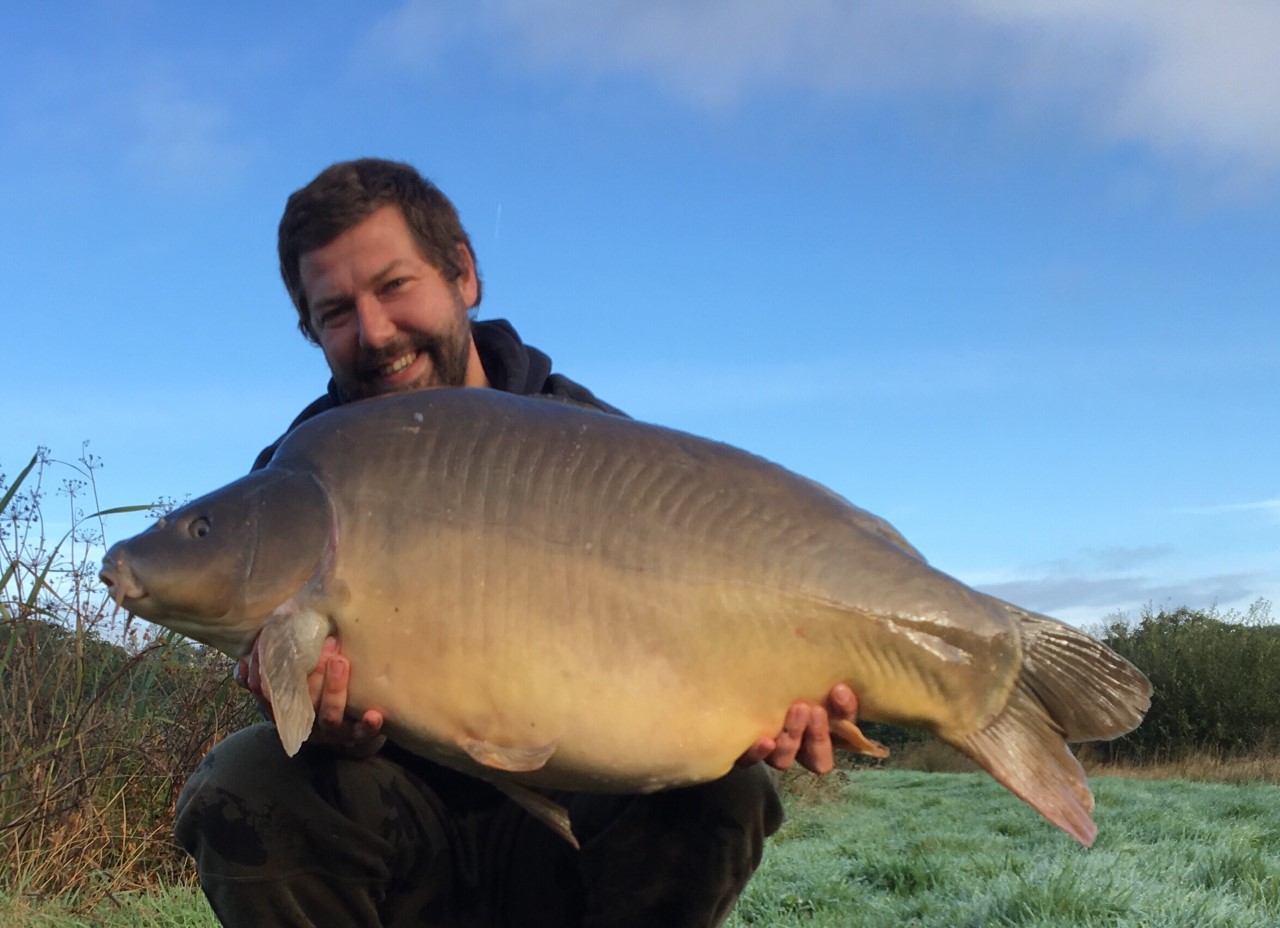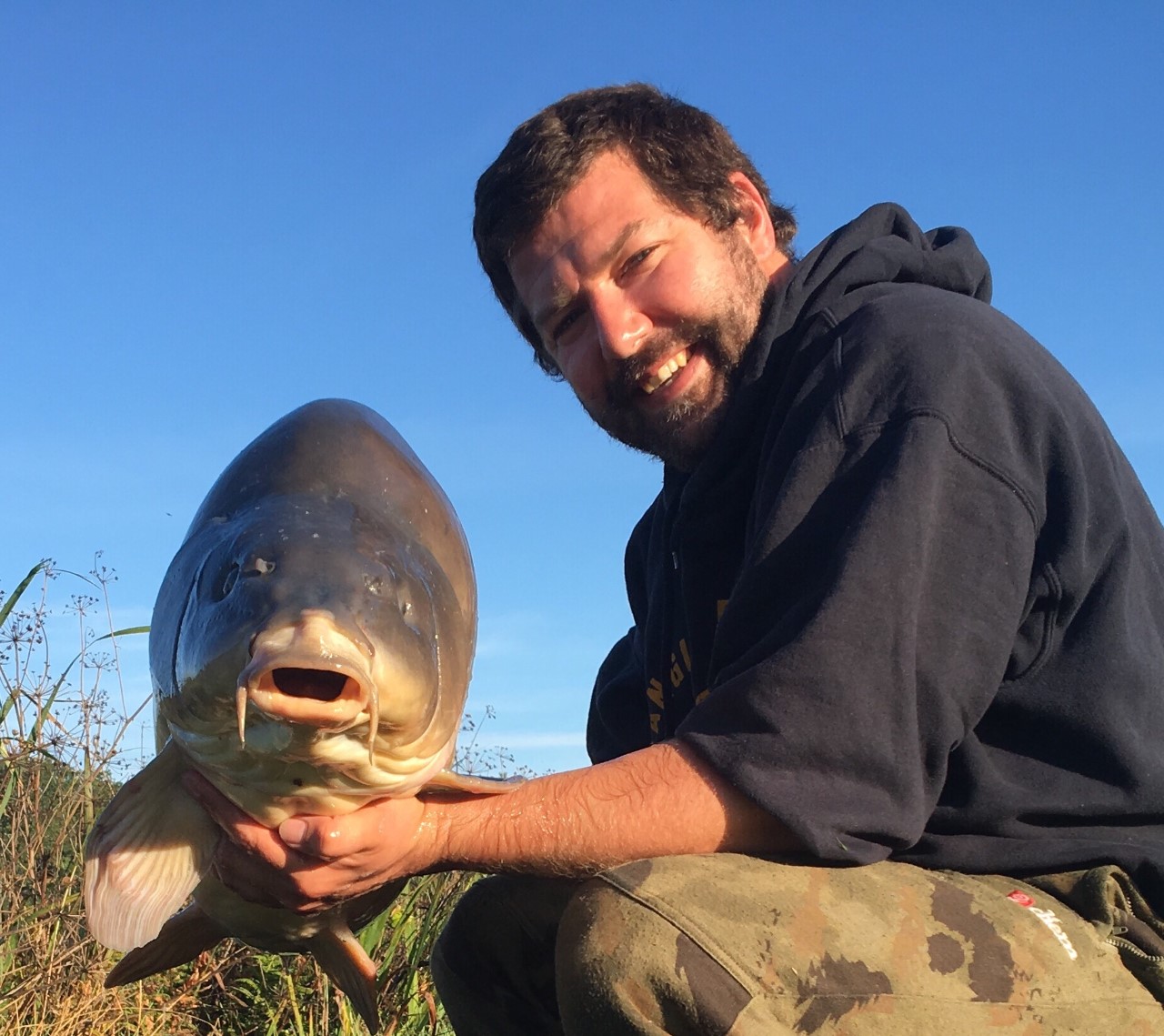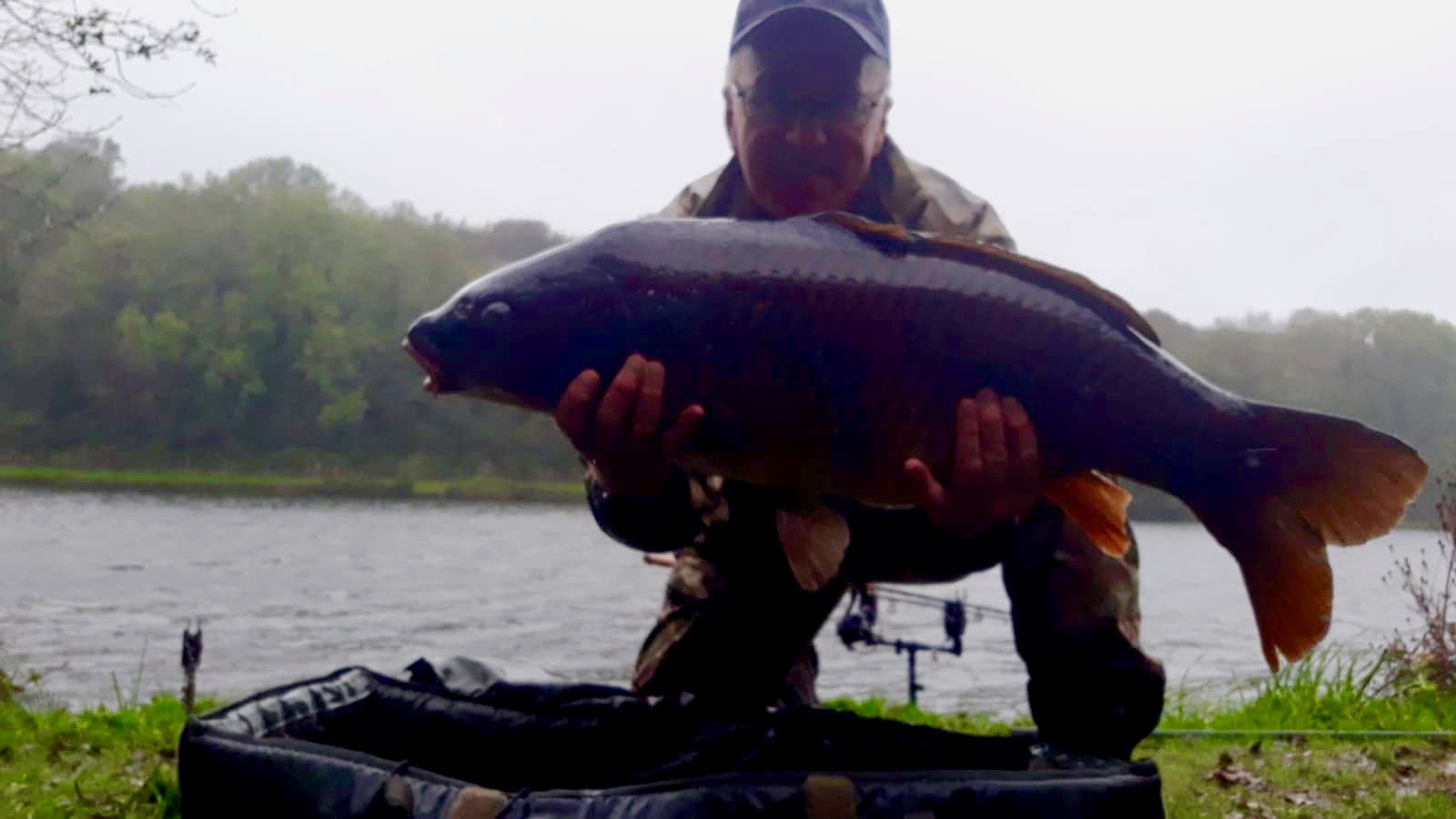
Mark Brown fished Lower Slade near Ilfracombe and landed a fine common carp of 27lb 4oz.
HUSBAND AND WIFE CARPY ACTION – Pat and Liz Curley always love fishing together and this year wanted to target the bigger Carp on the Main Carp Lake and that they did! Pat caught a pristine 26lb 9oz Leather Carp and a 22lb 3oz Mirror, while Liz caught her personal best Mirror at 25lbs 13oz! We’ll send Pat for some photography lessons though!!
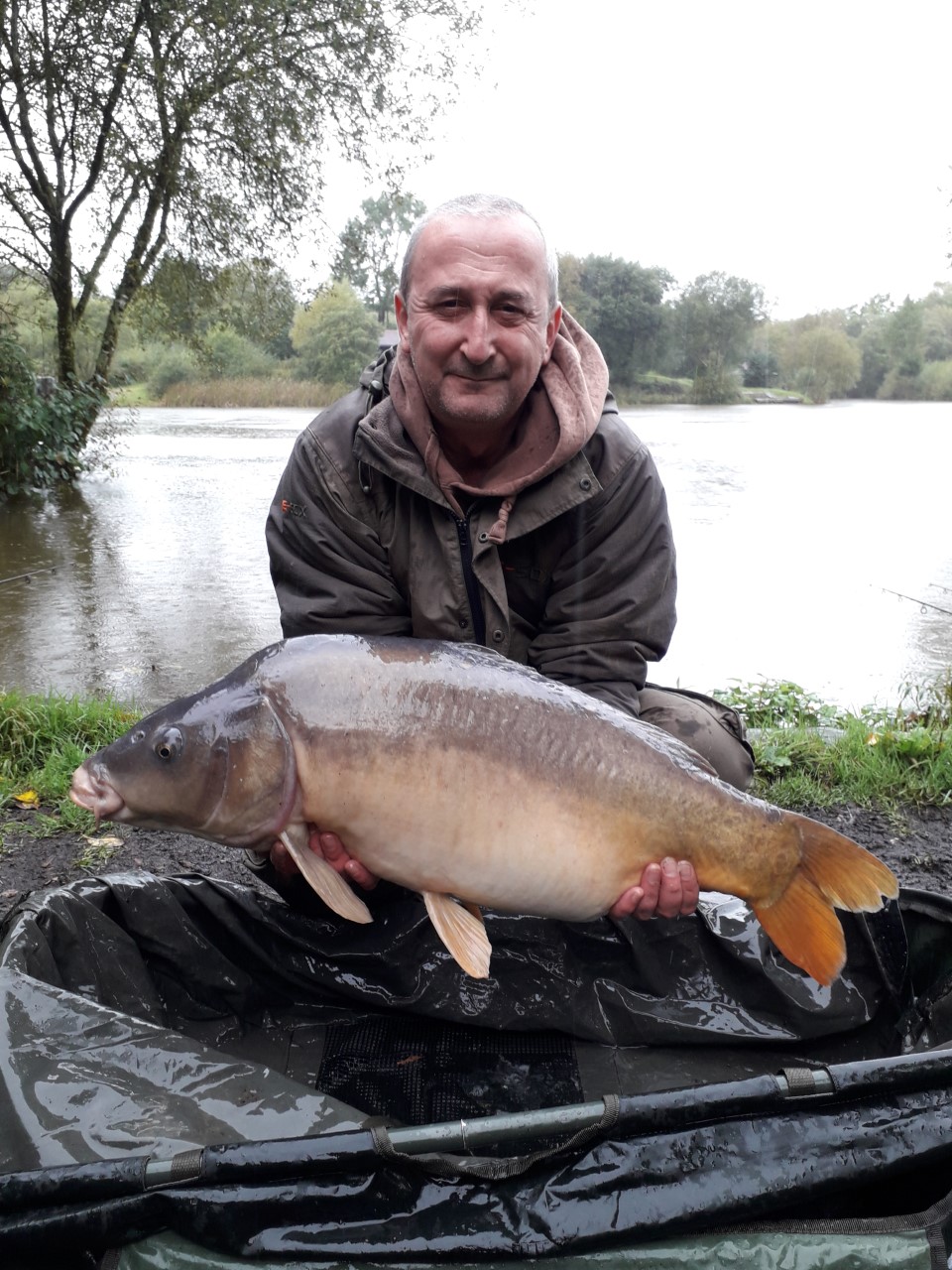
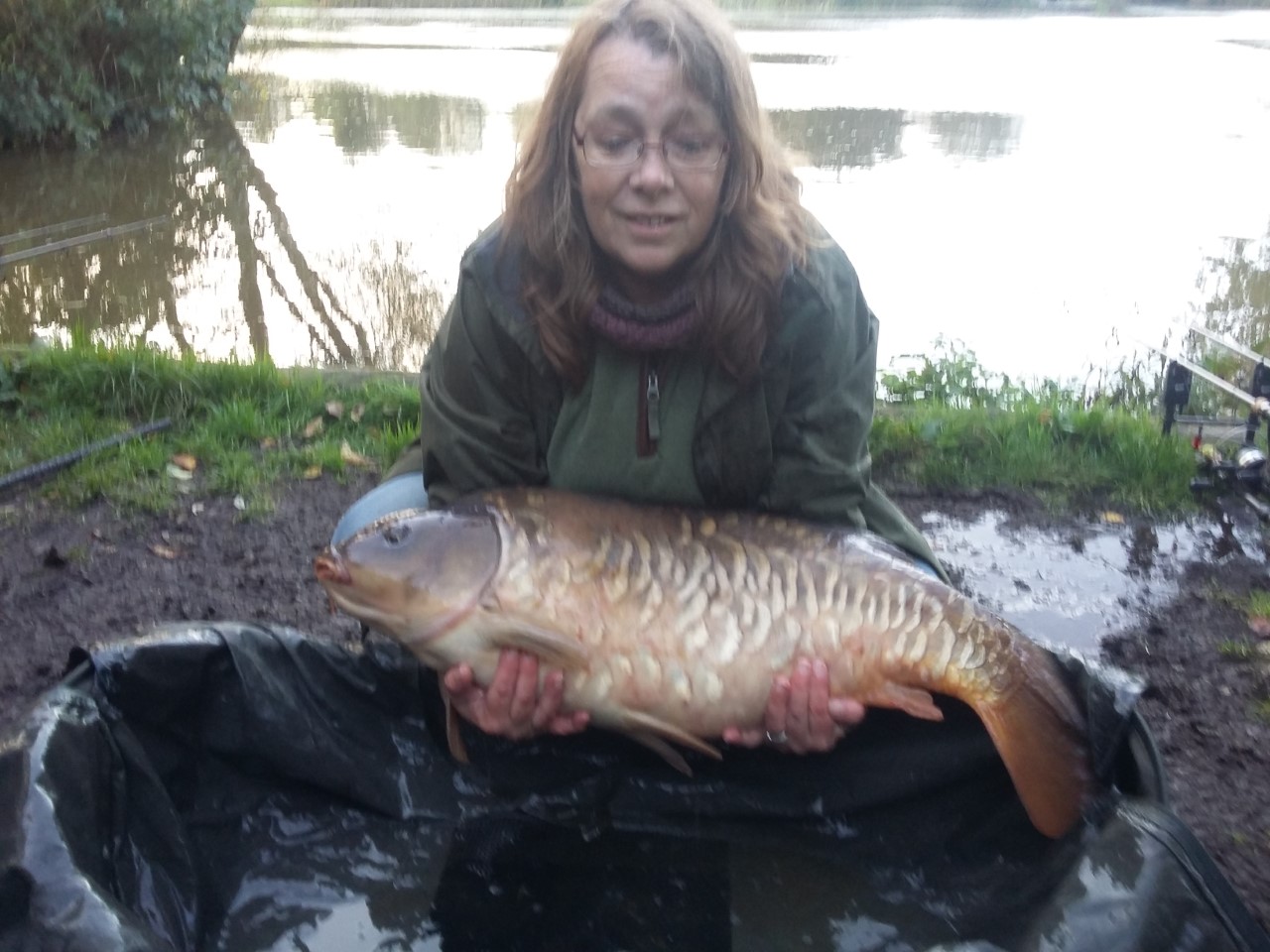
PB GOLDEN TENCH – Russ Robertson-Browne was a very lucky man catching this beautiful personal best 5lb Golden Tench from the Tench Lake as the hook pulled right at the last minute when he was fighting it out of the lillies, but he still managed to have it in the net!! He hasn’t a clue how he managed to still have it in the net but said “he was the luckiest man in Anglers Paradise that day!!”
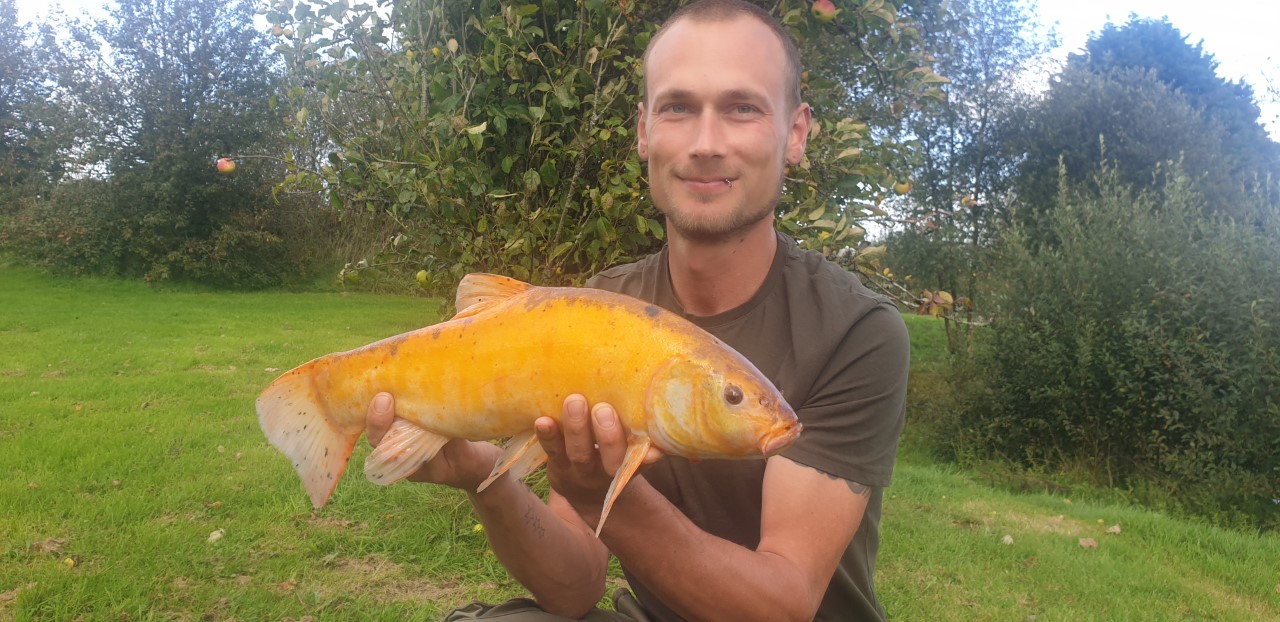
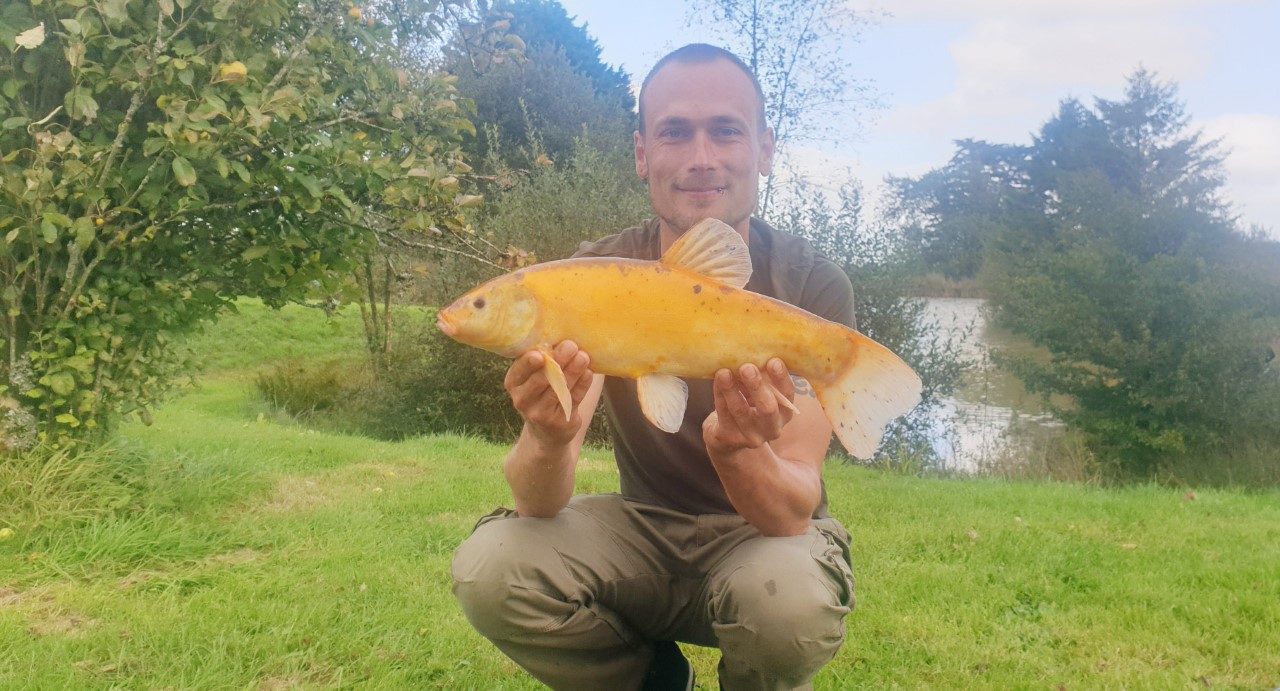
MAIN CARP LAKE BEAUTIES – The Main Carp Lake just continues to produce! Matthew Pearson joined us for his annual family holiday and had a session on the Main and caught this stunning 21lb 12oz Common and a 25lb 8oz Mirror. Both fish fell to mainline wafters in pva bags and made a great holiday memorable despite the weather!
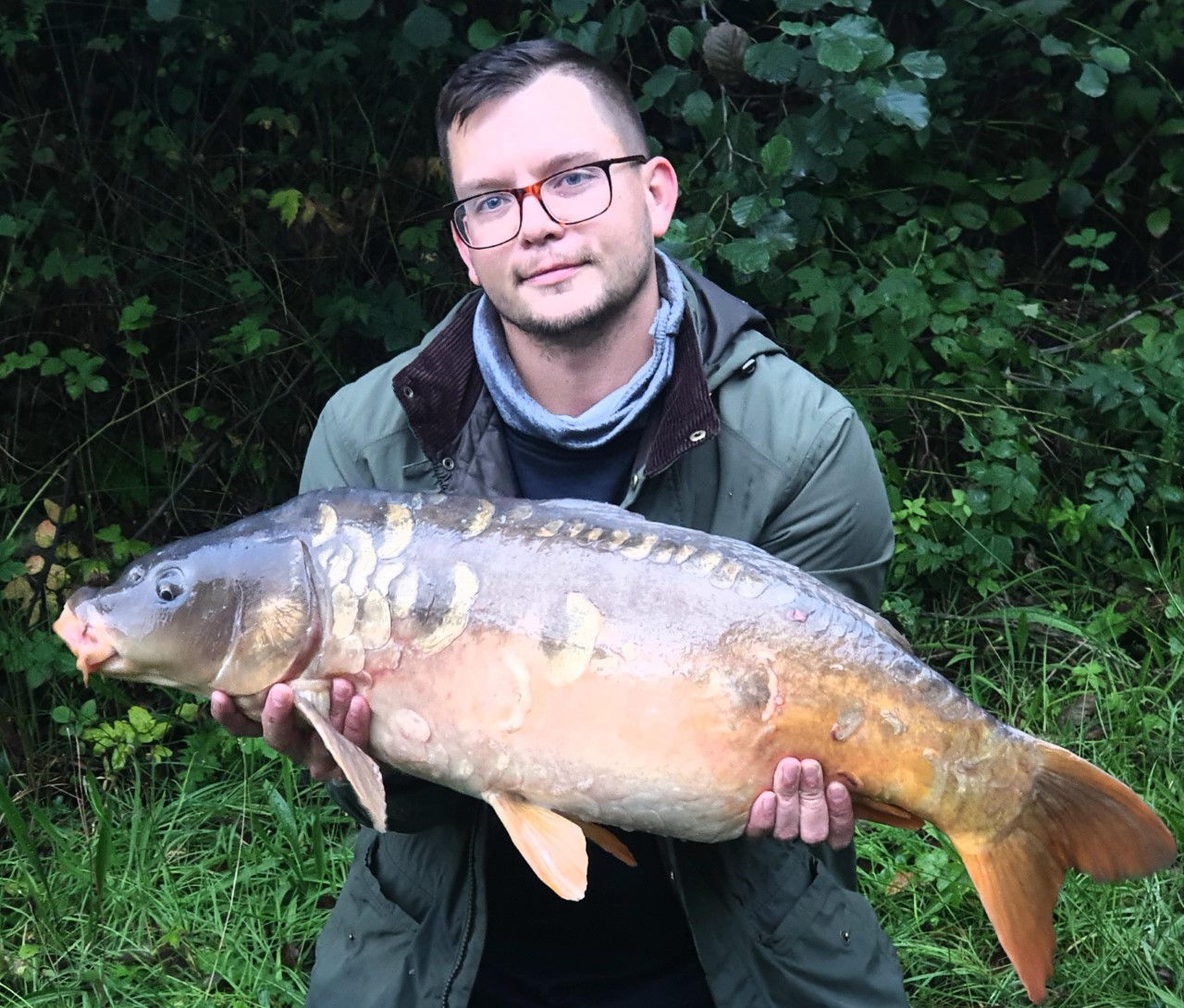
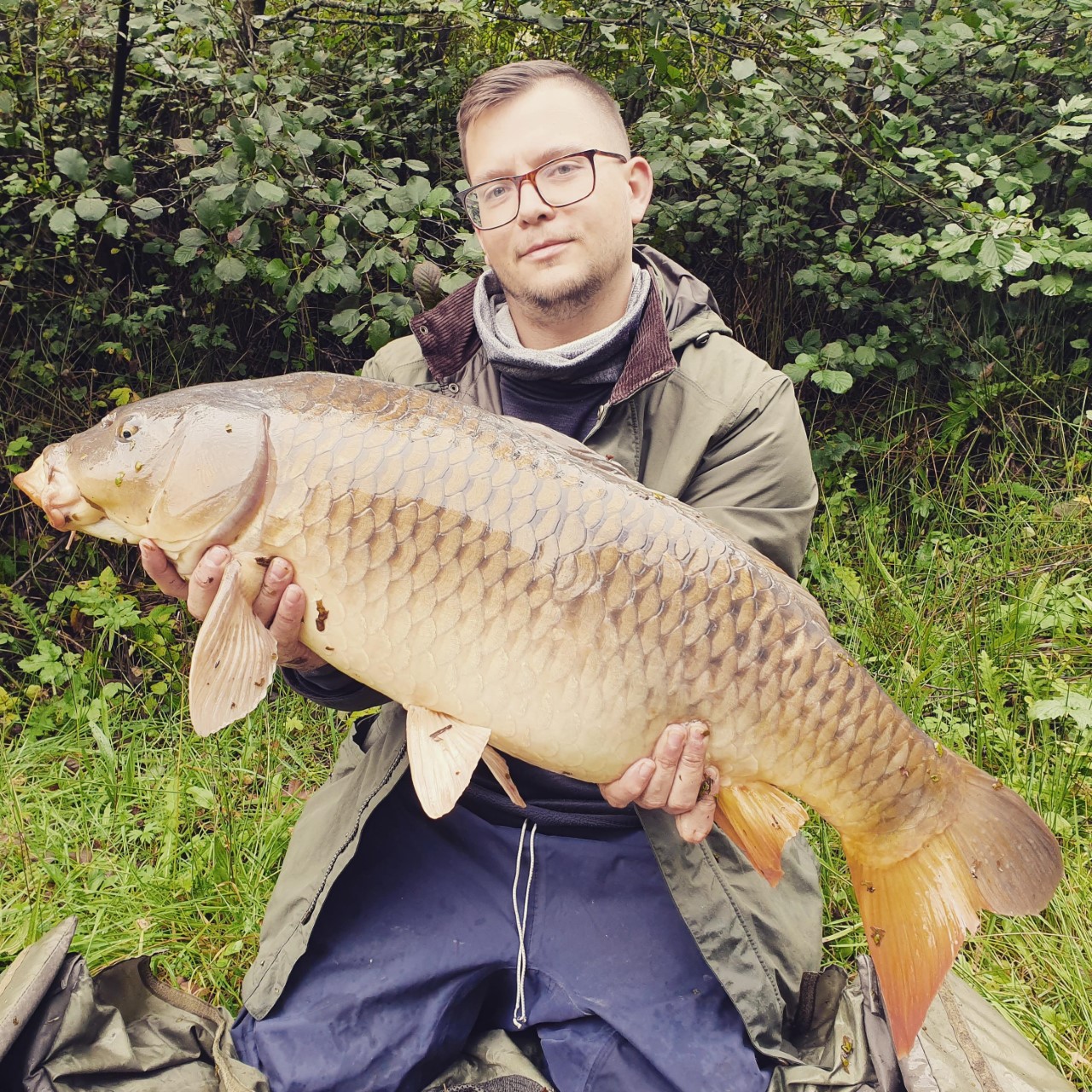
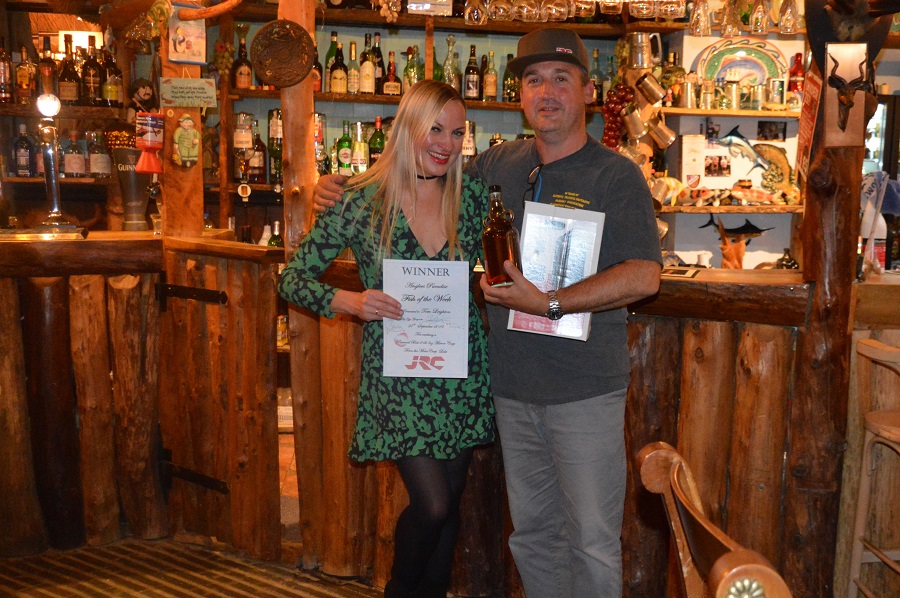
Tom Leighton after 10 years of coming to Anglers Paradise finally caught his first ever ‘Twenty’, a 21lb 8oz beautiful Mirror from the Main Carp Lake and won our Fish of the week competition too!
Tom’s story –“I have been coming to AP for 10 years now and for the last 5 I have wanted to get a 20 pound Carp but always fallen just short. Having had lots of help and advice from friends I headed to Main Carp Lake to have another go. Setting the alarm for 5 o’clock I managed to get the swim I wanted Nevs point. I set up in the half dark and rain and started feeding the swim.
In the morning I hooked into a heavy fish. It fought hard and I got her in close and up to the surface to see a beautiful fish that must be a 20, then she came off! Much despair at the missed fish but I got the rod back out. This was followed by catching an 18 06 which cheered me up and then it went quiet.
At 16:00 the rod twitched a little and I struck it expecting a small fish to find there was a lump on the end. The fish new what it was doing burying me in the lilies 3 times but eventually it went in the net and weighed at 21 08. Jim said I looked like a kid on his birthday that came downstairs to find his new bike. Finally done it and great to do it on my birthday week!”
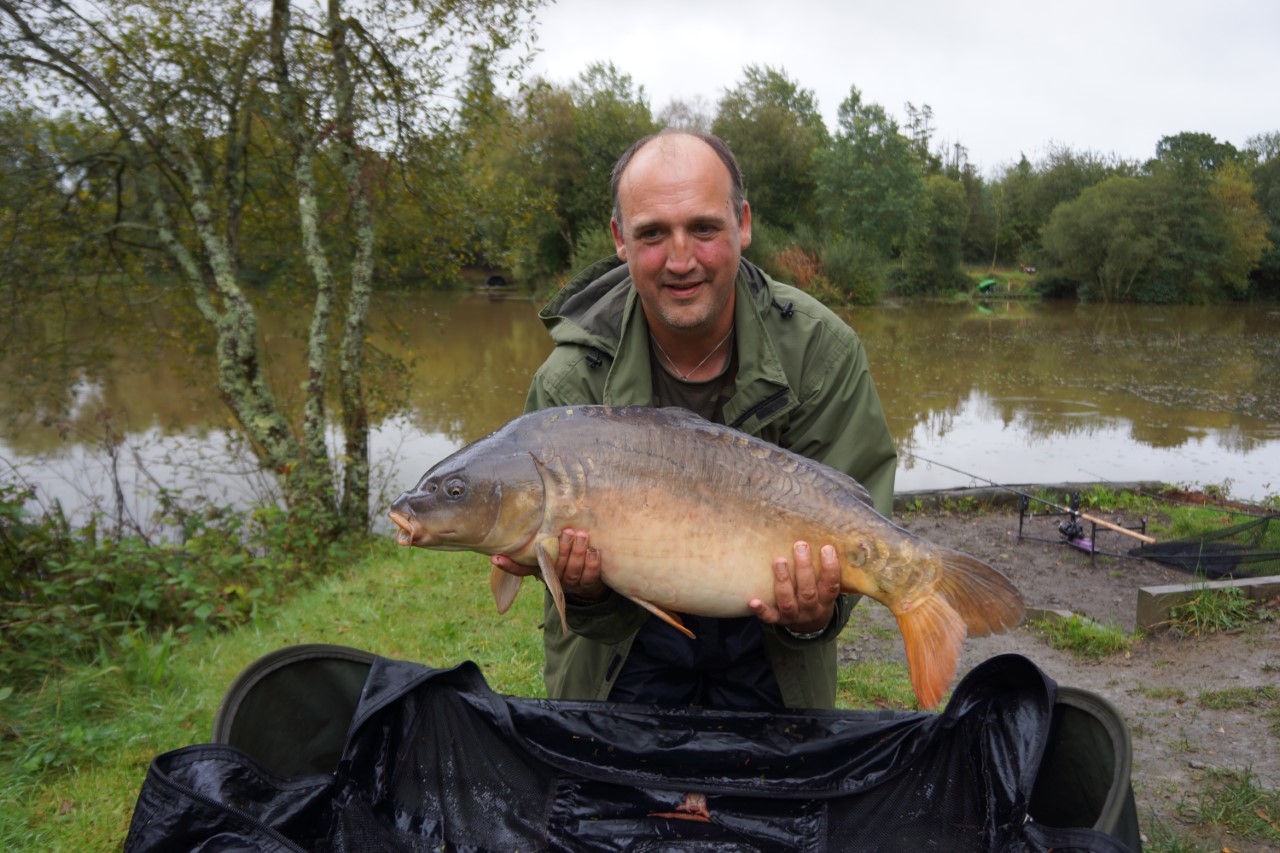
Sarah Robertson-Browne caught a personal best 20lb 2oz scaley Mirror Carp from Anglers Eldorado’s bottom Cat and Carp Lake 2. She’s only been fishing for the last couple of years and now she’s hooked for life!!
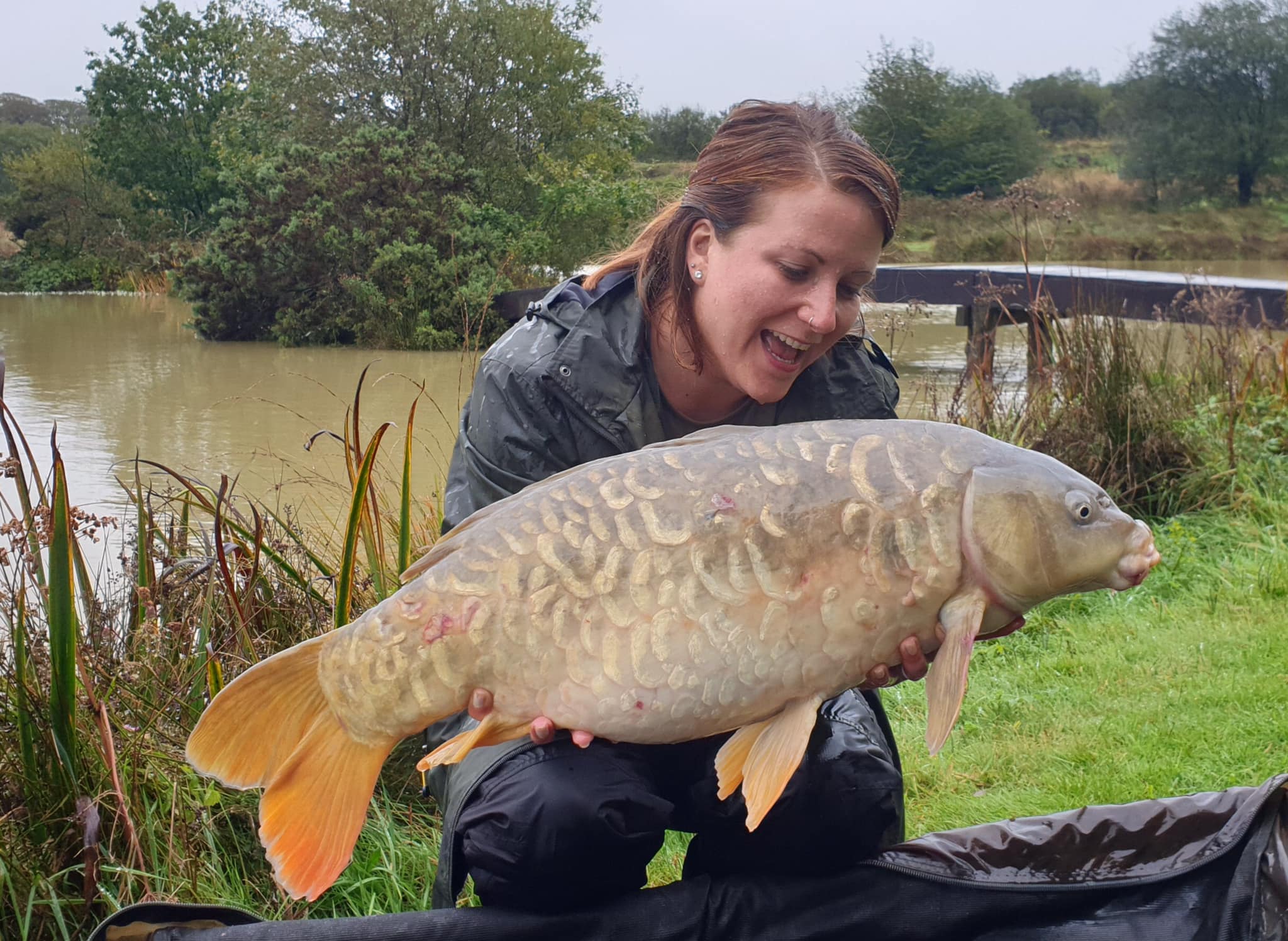
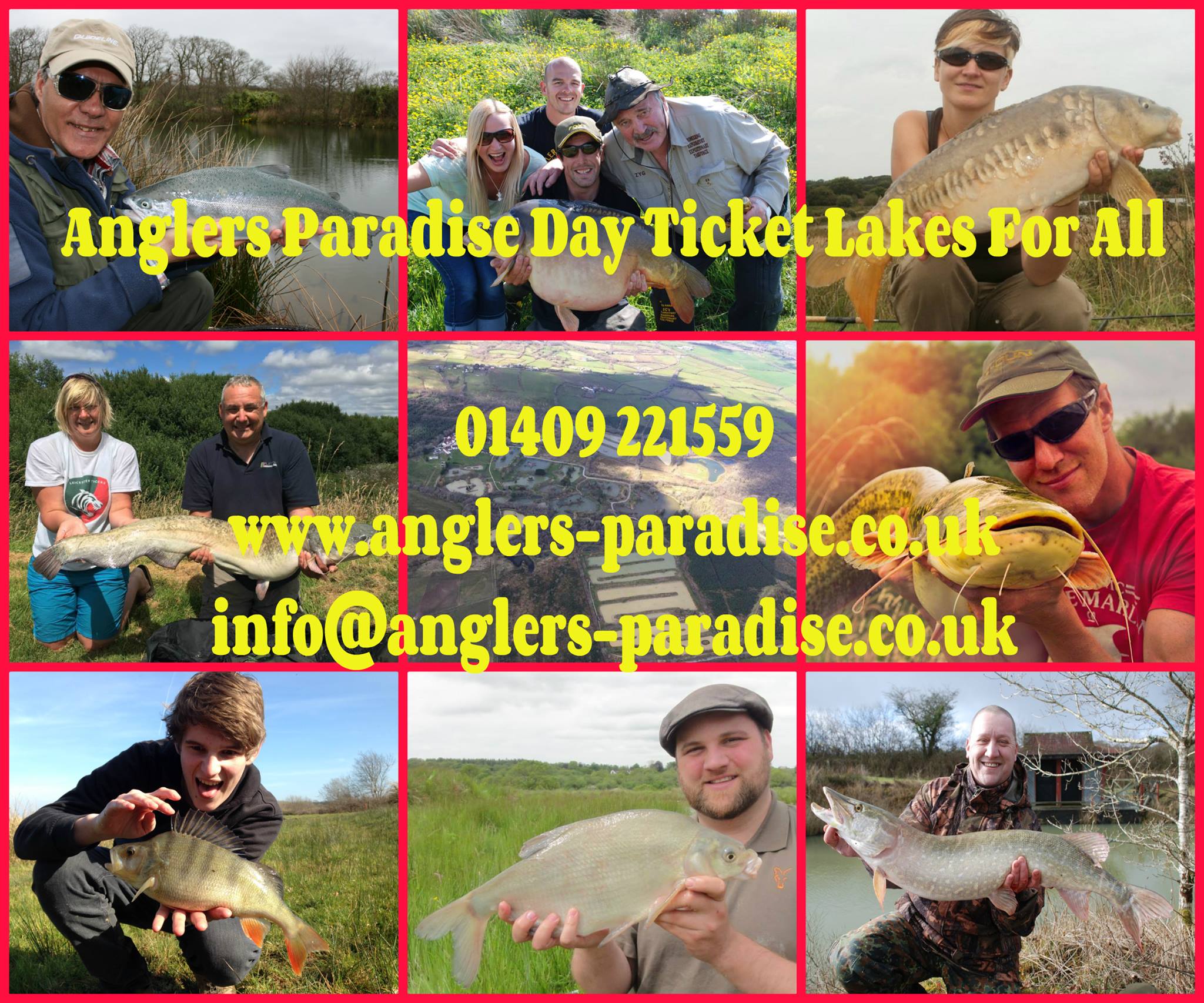
Woods and Ford win £2000 at Upper Tamar’s Mainline carp open
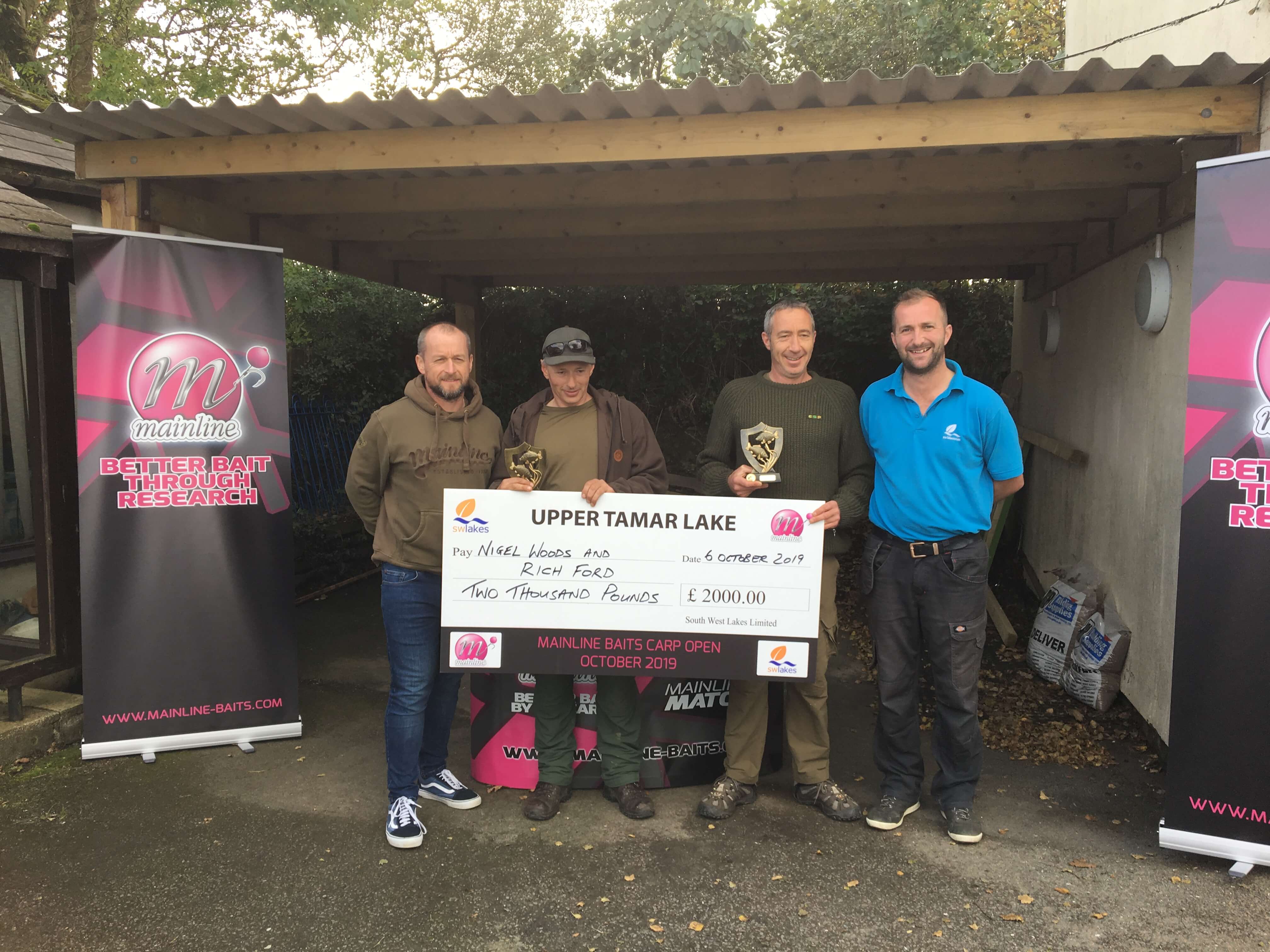
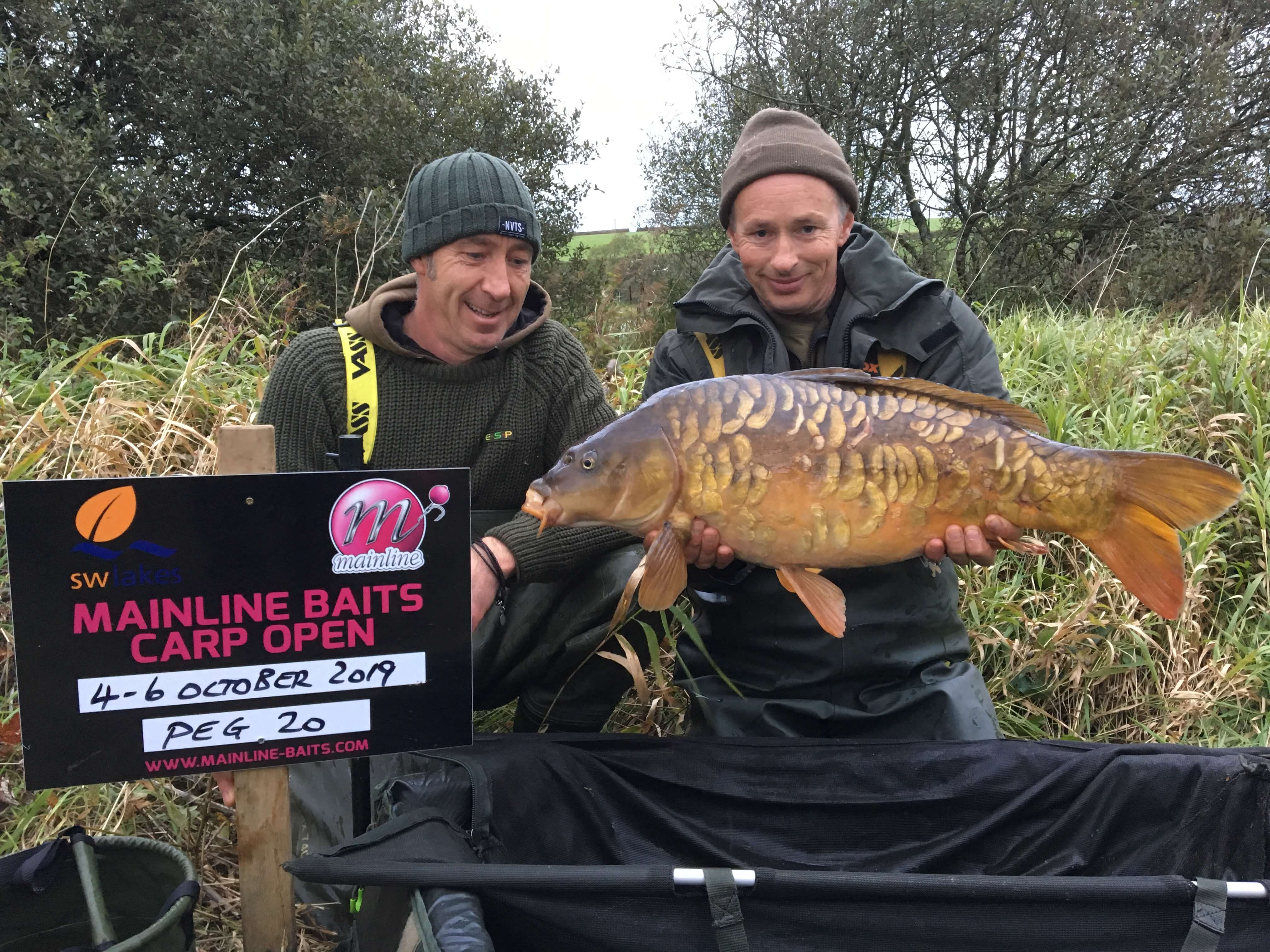
The third and final Mainline Baits carp open pairs at Upper Tamar took place from 4-6 October. 33 pairs turned out for the final event of the year with £3500 up for grabs. Anglers chose their swims, collected a mainline goody bag and were transported to their pegs. Fishing began at 4pm on the Friday and ended after 45 hours at 1pm on the Sunday.
The weather was rough to say the least, very strong winds hammered the anglers through Friday evening giving way to a much calmer Saturday and Sunday. The fishing was hard, but this made for a really great competition which went right down to the wire.
Nigel Woods and Rich Ford (Launceston) scooped the top prize of £2000 with 4 carp for a weight of 49lb 1oz from peg 20 on the Cornwall bank. Nigel and Rich’s win followed on from winning the July competition and finishing third in the March event to cap a fine year at the prolific venue.
They held off a fantastic late flurry from Dave Bellew and Steve Lovell (Somerset) who caught three fish on the Sunday morning to finish on 47lbs 12oz and less than 2lb behind the winners. Dave and Steve collected £1000 for the runners up spot.
Jeff Watts and Simon Sweet (St Austell) were third and won £500 for their 3 carp with a total weight of 30lbs 13oz.
Largest fish winning 2kg of Mainline spod and PVA mix was Daniel Comaneci (London) who had a cracking 21lb 14oz mirror carp. Smallest fish, winning 2kg of Mainline spod and PVA mix was Karl Yates (Bude) who had a 9lb 13oz common carp.
Section winners winning 5kg of Mainline freezer baits boilies were:
Mervyn Beal and Danny Peters
Jamie Rusling and Nick White
Ben and Matt Cooper
Daniel and Tiberiu Comaneci
Massive thank you to Mainline Baits for their sponsorship.
The next Mainline pairs competition is 27-29 March 2020 and bookings can be made on 01566 771930.
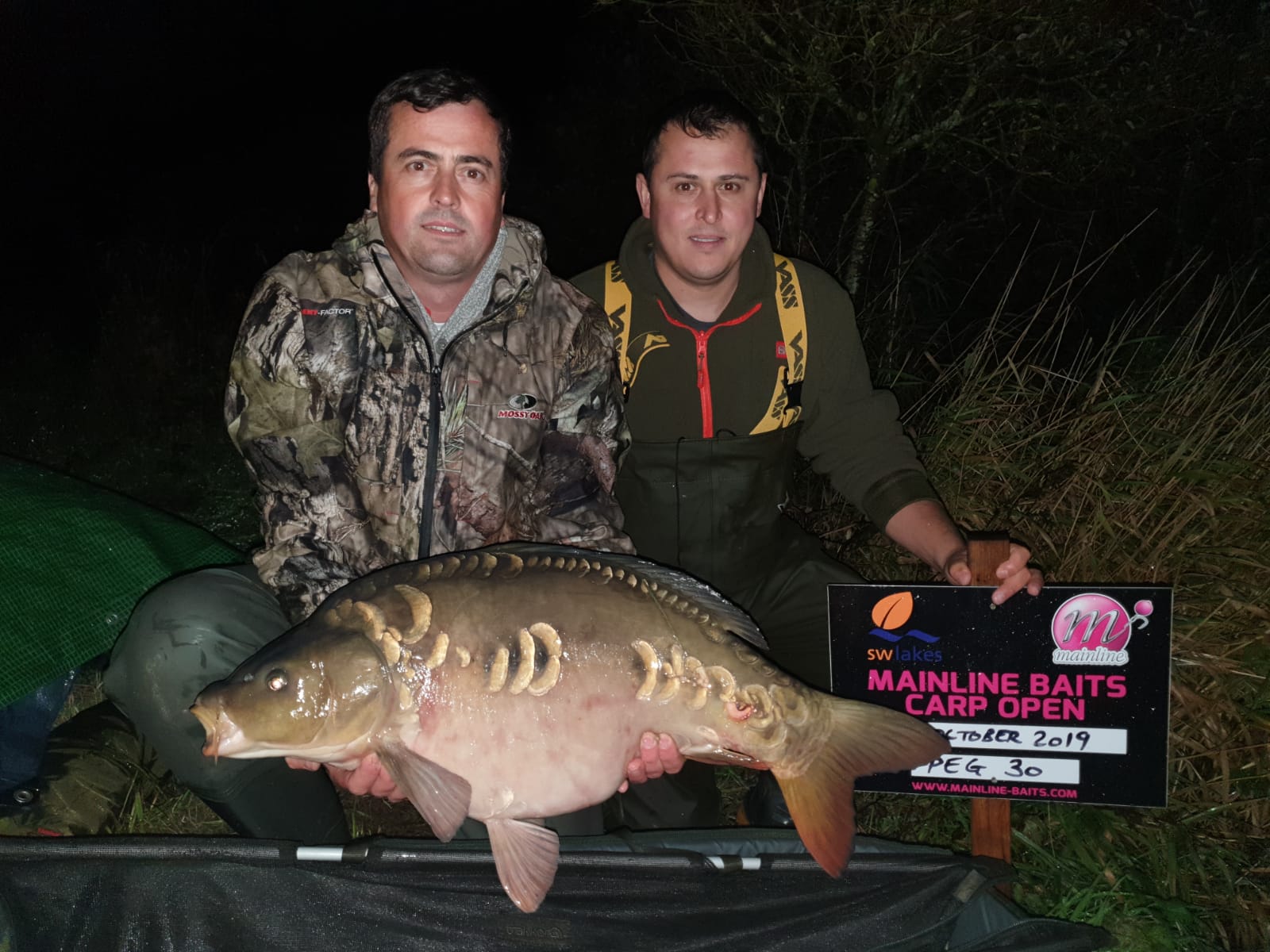
John Jobson had a cracking day today on Stafford Moors Lodge Lake back Island on the spit banking 20lb 11oz mirror. Followed by new personal best 30lb 2oz mirror. Both succumbed to 12mm krill and pink ccmore northern specials snow men, loose feed of crushed edge boiles very happy days accompanied by Barney the faithful hound.
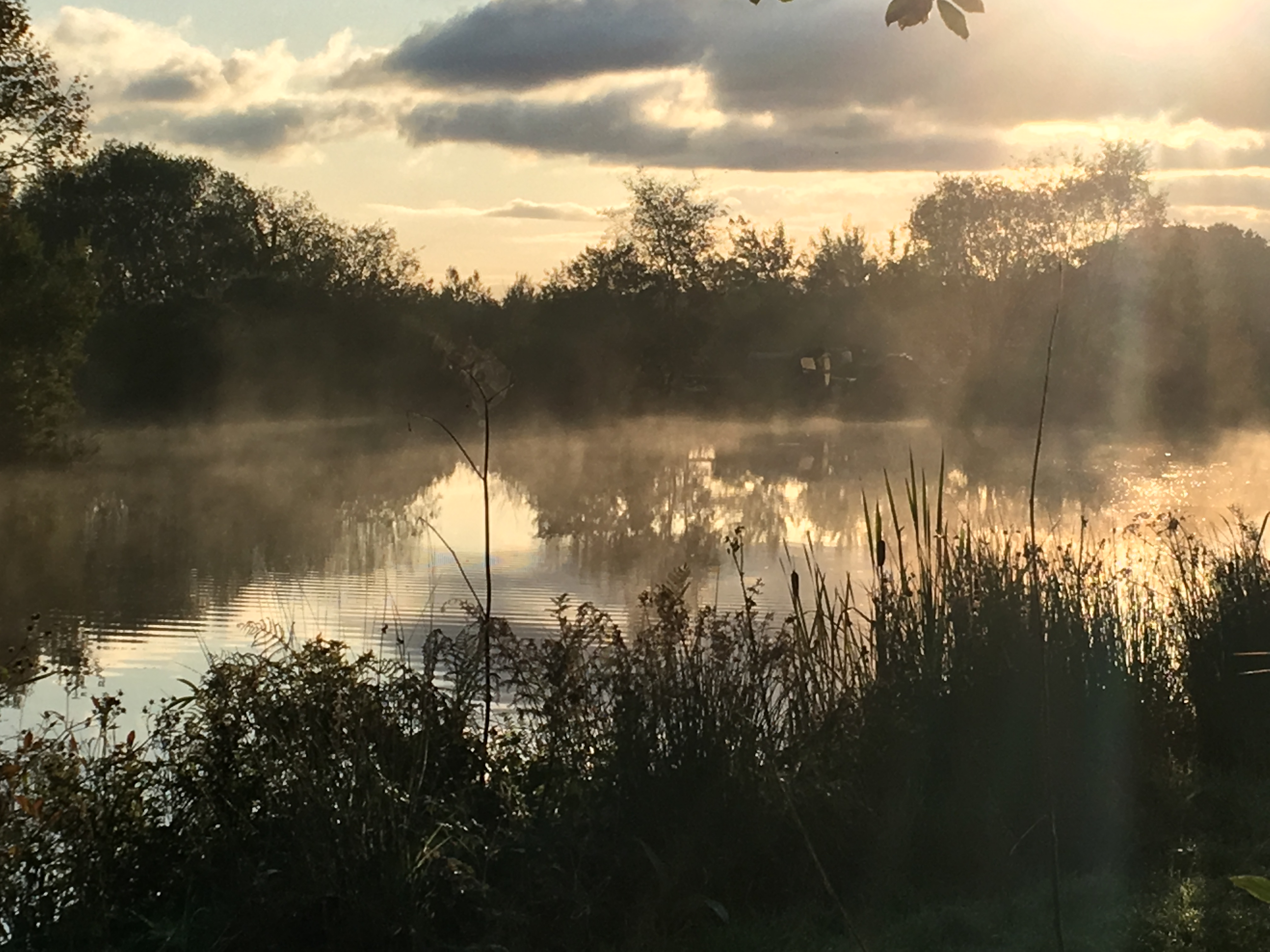
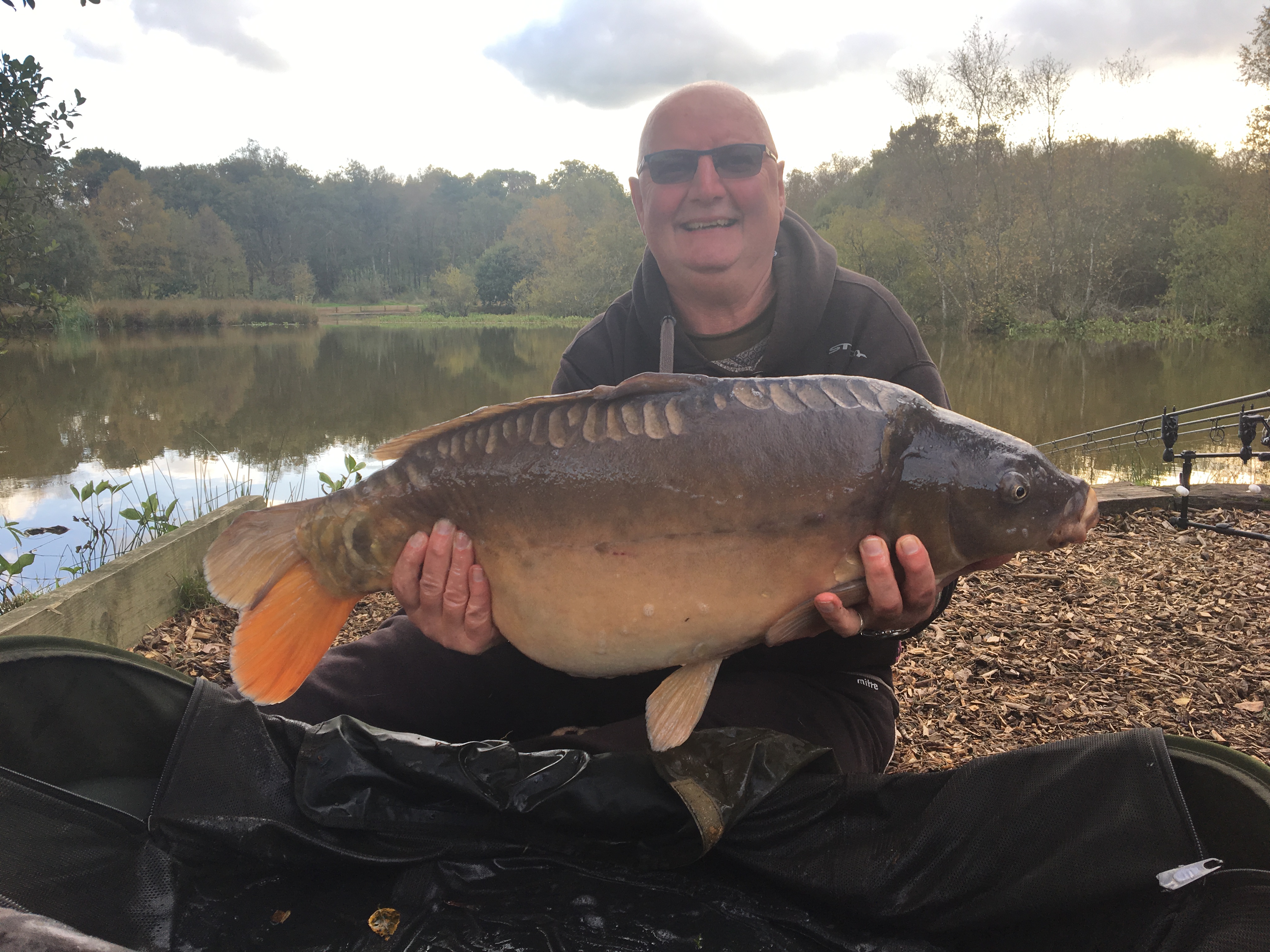
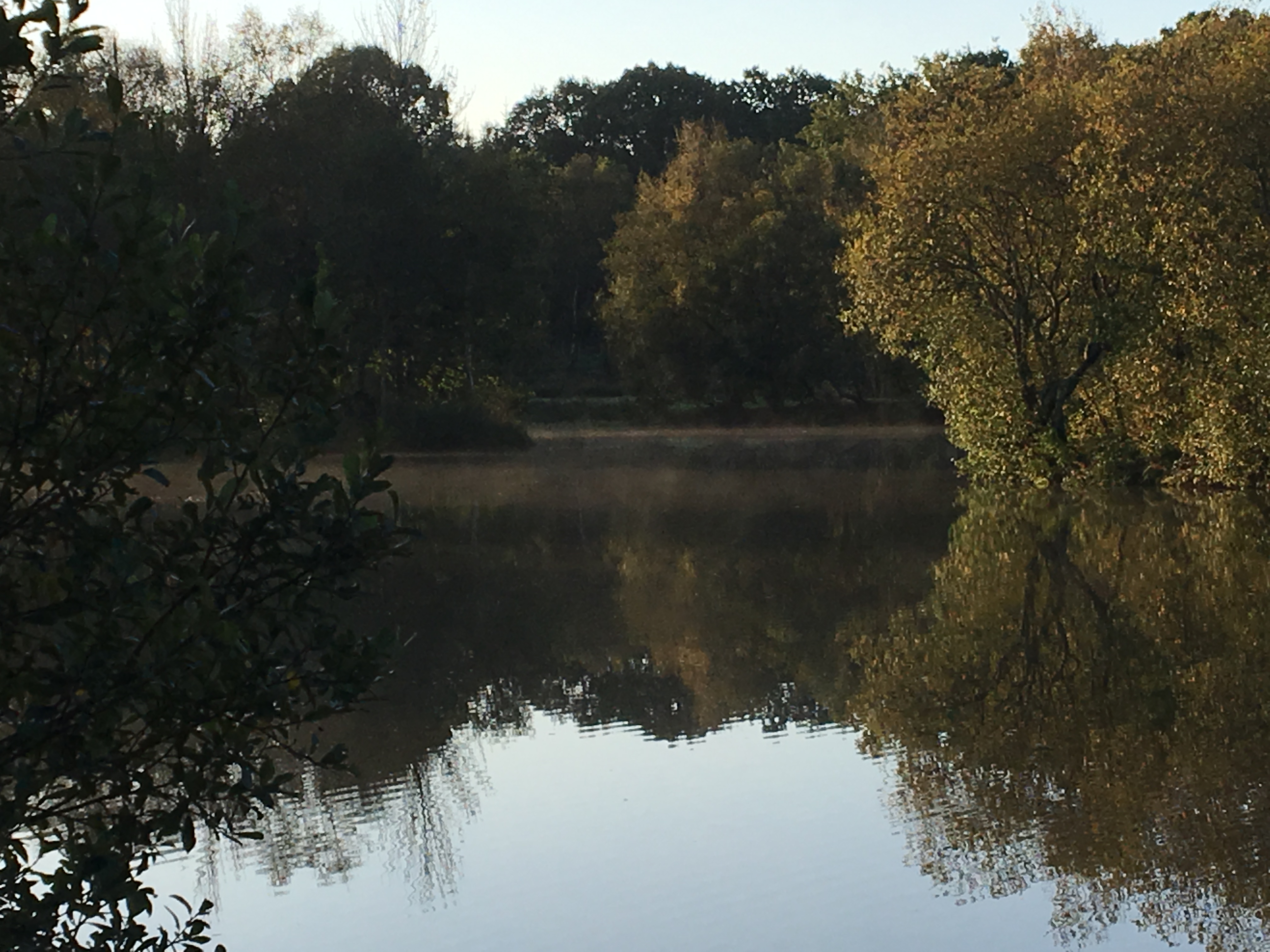
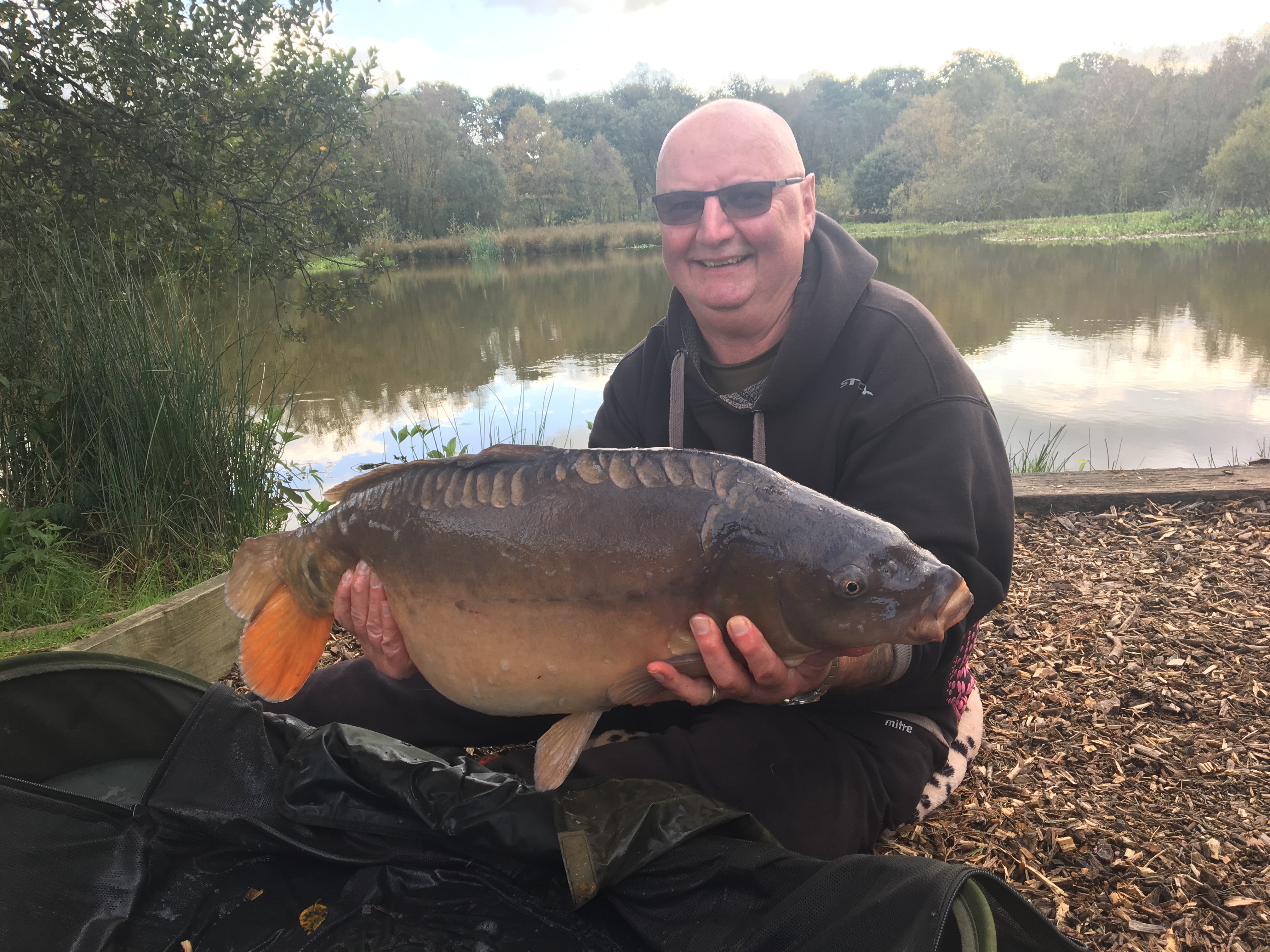
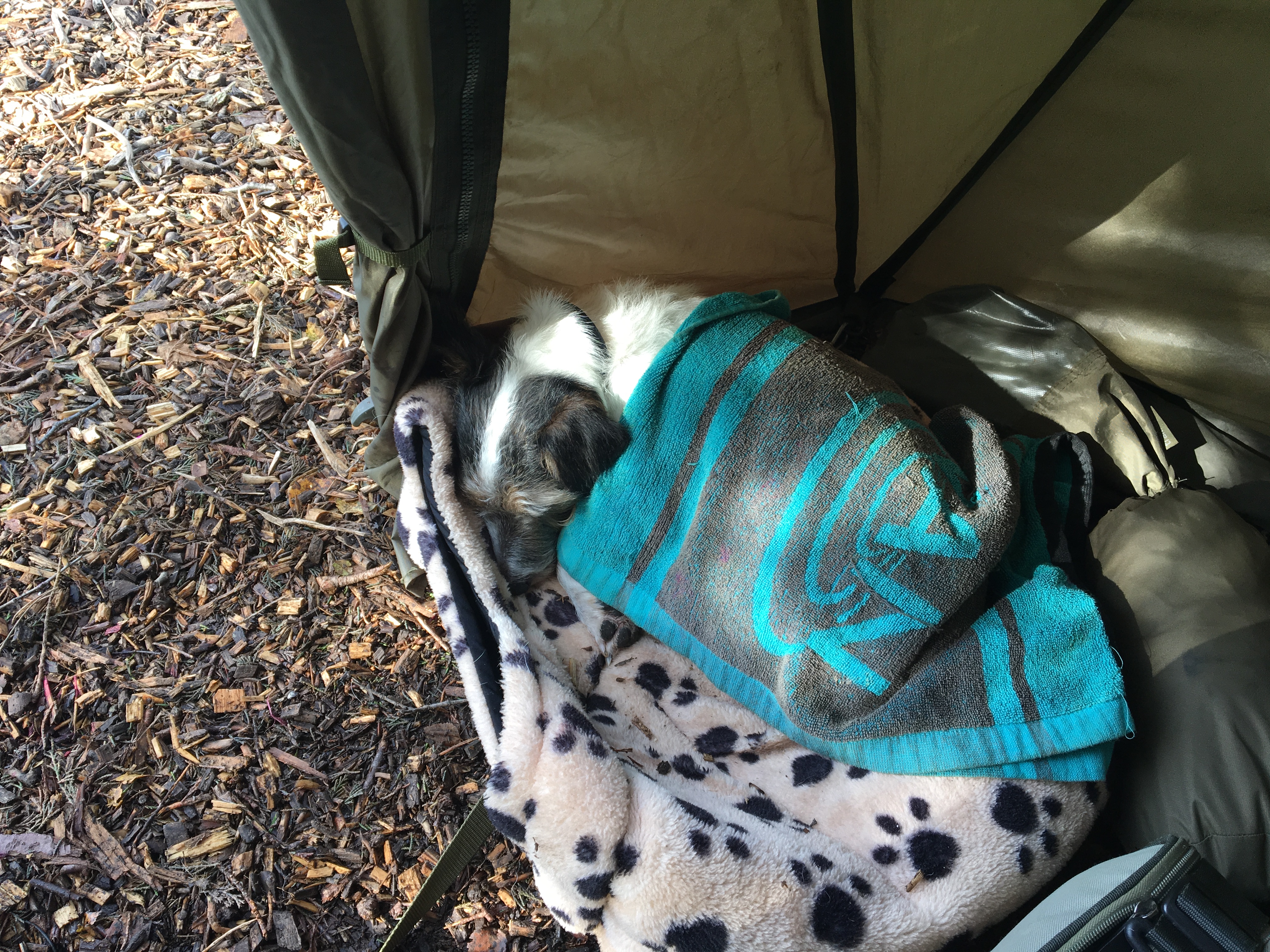
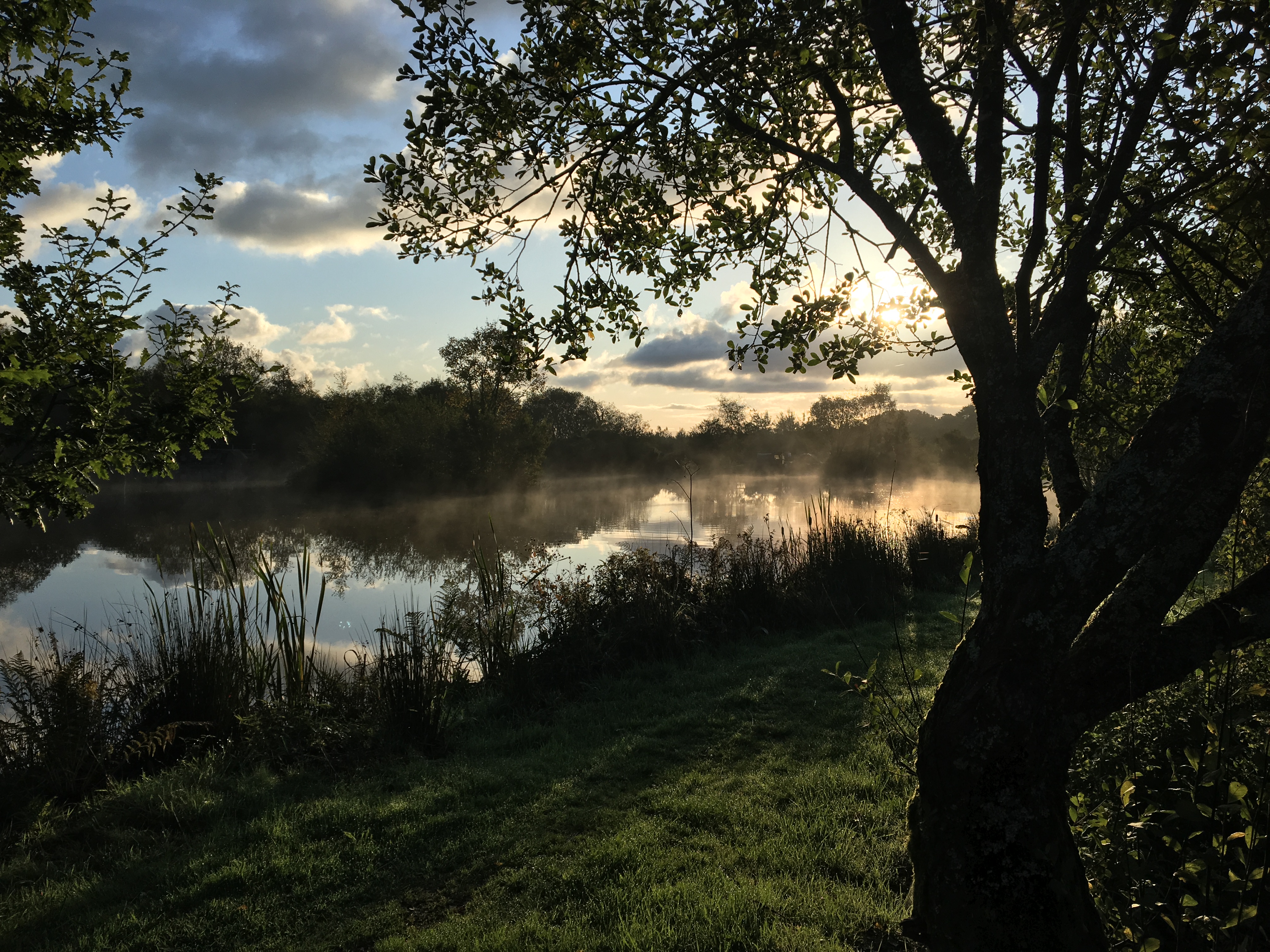
If Carlsberg made Fishing weeks then this would be right up there!! Scott Brown had a week he’ll never forget and achieved Angling dreams he never thought would come true!! The start of the week he had a 65lb Cat from the Specimen Cat Lake. Then he went on the Main Carp Lake and had Carp 22lbs, 21lbs, 20lbs, 18lbs & 16lbs. He had Catfish of 27lbs & 20lbs from the Easy Access, 12lb Grass Carp from the Tench Lake as well as lots of big Golden Tench, Koi, Crucians, Rudd, Orfe and a Blue Tench for Dad too!
Scott’s story –
The highlight of the entire holiday was a 72 hour session on The Kracking Carp lake here’s my story. Arriving early morning the lake had two other anglers on in peg 1 and peg 2 so I decided to head to the total opposite end of the lake hoping that the lower angling pressure that end would increase my chances.
After some careful baiting of crushed Nash Scopex Squid, hemp and sweet corn I got my casts spot on with a good land. The first day and night went without a bleep but I knew I’d got everything right so I decided to not recast or add more bait yet the patience paid off as at first light the left hand rod slowly beeped away I struck into it and immediately knew this felt a good fish. A slow and ponderous fight which normally indicates a big fish took place as the fish rolled I couldn’t believe my eyes with the sheer size of it, i knew straight away I’d hooked the legendary Silverback! Guiding her over the landing net was one of my greatest angling moments I was buzzing! 52lb 3oz a new Pb and my first ever 50lb carp.
That afternoon the Baliff came to see me and I said I’d had Silverback so the Parrot was next on my list, never in my wildest dream did I think this would become reality. But about the same time the next morning the alarm screamed off and a much more aggressive fight took place. A much darker fish came up to surface and I saw the distinctive mouth that gives the fish it’s name. Knees shaking at this point I managed to land the beast at 47lb 2oz! That session will live long in my memory as one of my greatest angling achievements, 11 oz off a 100lb total from just two fish will more than likely not be repeated fir me ever again. Both fish came on Nash Scopex squid absit I have had total confidence in ever since its release and after results like this I can’t see me deviating from any time in the near future. A brilliant holiday and one that’s going to take some topping, but I’ll be back again next year as always and give it my best shot.”
